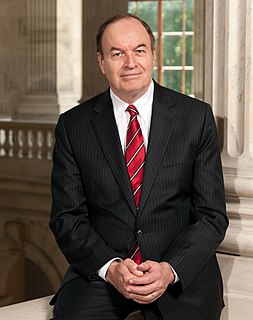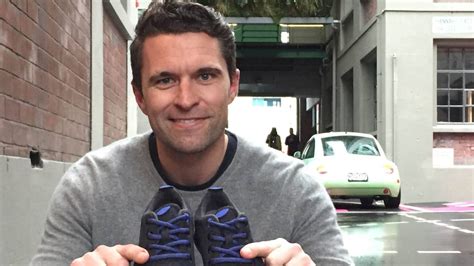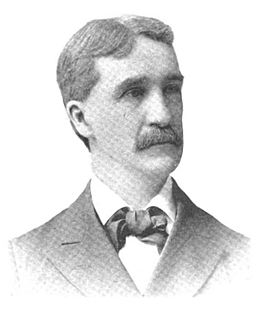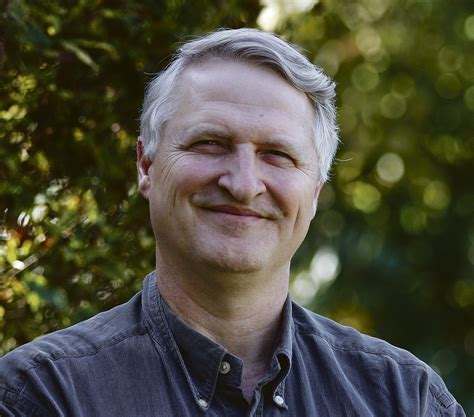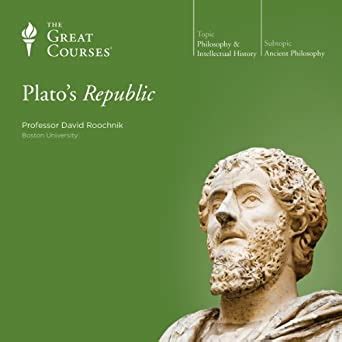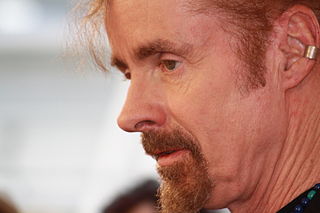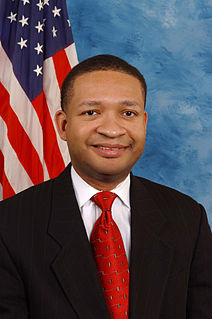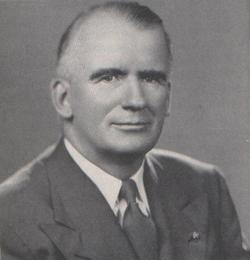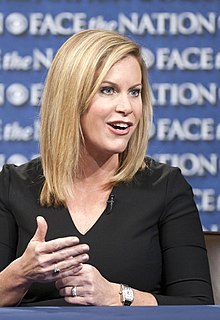Top 1091 Savings Accounts Quotes & Sayings - Page 16
Explore popular Savings Accounts quotes.
Last updated on April 20, 2025.
Wells Fargo's internal review only covers unauthorized accounts dating back to 2011. News reports and court documents suggest these problems might have existed long before then. The 2013 'Los Angeles Times' articles led to the L.A. city attorney's office investigation into Wells Fargo's sales practices.
During the Qin Dynasty, all books not relating to practical concerns such as agriculture or construction were ordered burned by the emperor to guard against "dangerous thought." Whether accounts of zombie attacks perished in the flames will never be known. This obscure section of a medical manuscript, preserved in the wall of an executed Chinese scholar, might be proof of such attacks.
The common people do not accurately adapt their thoughts to objects; nor, secondly, do they accurately adapt their words to their thoughts; they do not mean to lie; but, taking no pains to be exact, they give you very false accounts. A great part of their language is proverbial; if anything rocks at all, they say it rocks like a cradle; and in this way they go on.
Sense of smell, of course, is only one of those dog qualities that can't be replicated or improved upon. I've been researching dogs in warfare for my book about 'Rin Tin Tin,' and I've read many accounts of their heroics: carrying messages through battle, alerting troops to enemy planes, and even parachuting behind enemy lines.
If we knew that we would meet the Lord tomorrow - through our premature death or through His unexpected coming - what would we do today? What confessions would we make? What practices would we discontinue? What accounts would we settle? What forgivenesses would we extend? What testimonies would we bear? If we would do those things then, why not now?
None of us are rational economic men as we're supposed to be portrayed in economic theory where mixes of passions, of desires, of moral principles, of self-deception, of altruism, of concern of others, of concerns for ourselves and an interest in our bank accounts. And social policies have to be responsive to the complexity of who we are as people or else, like the war on drugs, they're simply going to fail.
When you think of policies that are going to address inequality of wealth, you have to be very thoughtful about what economists call "incidence of taxes." If most of the savings is being done by capitalists, and you tax the return on capital, then they will have less to invest. That would mean, over the long run, that the rate of interest would go up. That would therefore undo some of the intent to lower the income of capitalists.
According to current research, in the determination of a person's level of happiness, genetics accounts for about 50 percent; life circumstances, such as age, gender, ethnicity, marital status, income, health, occupation, and religious affiliation, account for about 10 to 20 percent; and the remainder is a product of how a person thinks and acts.
Our physiological constitution is obviously a product of Darwinian processes, insofar as you buy the evolutional theory as a generative, as an account of the mechanism that generated us. Our physiology evolved, our behaviors evolved, and our accounts of those behaviors, both successful and unsuccessful, evolved.
The writer has a grudge against society, which he documents with accounts of unsatisfying sex, unrealized ambition, unmitigated loneliness, and a sense of local and global distress. The square, overpopulation, the bourgeois, the bomb and the cocktail party are variously identified as sources of the grudge. There follows a little obscenity here, a dash of philosophy there, considerable whining overall, and a modern satirical novel is born.
That's why Apple, Microsoft and the big information technology companies have kept so much money registered abroad (although in US dollar accounts with a nominal foreign address's owner). They pretend to make their global income in Ireland. They have an office, which could be simply a postal drop box in Ireland, and claim to make all their money there, not in America.
Christ's divinity accounts for His exaltation to the right hand of God, justifies the worship of angels and the confidence of mankind. It makes clear His right to the throne of the universe, and enables the mind to understand why He is exalted in providence, in grace, and in judgment. It is the unifying truth that harmonizes all other teachings of Christianity, and renders the entire system symmetrical and complete.
The border between music and noise is always culturally defined—which implies that, even within a single society, this border does not always pass through the same place; in short, there is rarely a consensus.... By all accounts there is no single and intercultural universal concept defining what music might be
Hillary Clinton, herself, in a leaked State Department email identified the Saudis as still the major funder of Sunni jihad around the world. And we would basically say to our allies that we will no longer support such policies which we, ourselves, have been a party to and that we would put a freeze on the bank accounts of countries that continue to fund jihadi terrorism.
In 2013, Samsung accounted for about 20 percent of South Korea's total business profits. Samsung Electronics, just one of scores of subsidiaries, accounts for close to 15 percent of the total shares in the South Korean stock market. But you don't need to know these figures to get a feel for Samsung's hold on the country.
Use visual cues to prompt yourself to put away more. A photograph of the beach house where you and your husband can envision spending your retirement will remind you to bump up the contribution to your 401(k); a snapshot of your child in a college sweatshirt can encourage you to put more into a 529 college savings plan.
I admit that one should never underestimate the capacity of banks to destroy enormous amounts of accumulated capital and reduce, temporarily, the supply. After all, capital is the accumulated savings of mankind. And banks are great masters in destroying enormous amounts of capital with great regularity.
The word beauty is unavoidable … it accounts for my decision to photograph … There appeared a quality, beauty seemed the only appropriate word for it, in certain photographs, and I am compelled to live with the vocabulary of this new sight … through over many years [I] still find it embarrassing to use the word beauty, I fear I will be attacked for it, but I still believe in it.
If writing with a goal - whether it be evangelistic, apologetic, or didactic - implies propaganda, then all recorded history is propaganda. . . a work shouldn't be dismissed simply because of the strong convictions of the writer. Should we discount the facticity or reliability of the accounts of Nazi concentration camp survivors simply because they passionately recount their story?
I am deeply convinced that any permanent, regular administrative system whose aim is to provide for the needs of the poor will breed more miseries than it can cure, will deprave the population that it wants to help and comfort, will dry up the sources of savings, will stop the accumulation of capital, will retard the development of trade, and will benumb human industry.
If you want to understand what it means to be afraid, what fear as experienced by human beings is, then your focus must shift. No longer will you be satisfied with mechanical, physiological, neurological accounts. For this inquiry will require you to observe closely what human beings feel, sing, think, write and say to one another.
It [will-making] is the latest opportunity we have of exercising the natural perversity of the disposition. This last act of our lives seldom belies the former tenor of them for stupidity, caprice, and unmeaning spite. All that we seem to think of is to manage matters so (in settling accounts with those who are so unmannerly as to survive us) as to do as little good, and to plague and disappoint as many people, as possible.
In the long run, all wrongs are righted, every minus is equalized with a plus, the columns are totaled and the totals are found correct. But that's in the long run. We must live in the short run and matters are often unjust there. The compensating for us of the universe makes all the accounts come out even, but they grind down the good as well as the wicked in the process.
For all your long-term investments, such as retirement accounts that you won't touch for at least ten years, you need a mix of stocks and bonds. Stocks offer the best shot at inflation-beating gains. But stocks don't always go up. That's where bonds come into play: They have less upside potential, but they also do not pack the same risk.
Dreams, in their essence, include risk. This risk could be physical danger (often true in climbing big mountains like Everest), or it could be financial (leaving a comfortable job and pouring your life savings into a business venture), or it could be emotional (like the feelings of loss and questioning that comes with losing friends and coworkers to climbing accidents).
In previous generations, there was purpose; you had to die, but there was God, and literature and culture would go on. Now, there is no God, and our species is imminently doomed, so there is no purpose. We get up, raise families, have bank accounts, fix our teeth and everything else. But really, there is utterly no purpose except to be alive.
Some of the biographies [of princess Margaret] were really sensationalist, News of the World sorts, but they were great because they also gave first and secondhand accounts of her at home. The butlers come forward and give little moments, some of which you discard and some which ring somehow true and you use.
Obviously, our most pressing need is subsistence for the most vulnerable victims of Katrina, but we should not overlook the fact that the victims of Katrina also include middle-class Americans who have saved and invested, but now face an economic crisis, .. They should be able to tap into their savings and meet this crisis without facing an unfair penalty.
You look at the savings health insurance, there's so many great ways you can do that. You'll get great plans at much less money, at much less money. I mean, these people are being just killed. And you know the 25% was put out by Washington 'cause the real number could be three times that amount. I mean, it's catastrophic what's going on.
The issue is not about raising taxes. The issue is, how do we allocate the wealth that we have? We spend trillions of dollars on a military industrial complex. The United States accounts for 38% of all the military armaments produced in the world. 38%. This is a huge amount of money. People want and need services. They want roads, they want healthcare.
At the time of my second marriage, my husband was in his early 50s, I was in my mid-40s, and we each had two kids. We maintained our individual accounts and opened one for the house. We each kick the same percentage of our incomes into the house account and have a joint credit card. But we pay for our children separately.
If the American government can't stand behind the dollar, the world's benchmark currency, then the global financial system will very likely enter a new era in which there is much less trade and much less economic growth. It would be, by most accounts, the largest self-imposed financial disaster in history.
People don't dream all their lives of escaping the hellish countries they live in and pay their life savings to underworld types for the privilege of being locked up in a freezing, filthy, stinking container ship and hauled like cargo for weeks until they finally arrive in Moscow or Beijing or Baghdad or Kabul. People risk their lives to come here---to New York. The greatest city in the world, where dreams become reality.
I will never forget who this victory truly belongs to. It belongs to you. It belongs to you. I was never the likeliest candidate for this office. We didn't start with much money or many endorsements. Our campaign was not hatched in the halls of Washington. It began in the backyards of Des Moines and the living rooms of Concord and the front porches of Charleston. It was built by working men and women who dug into what little savings they had to give $5 and $10 and $20 to the cause.
Here’s how to know if you have the makeup to be an investor. How would you handle the following situation? Let’s say you own a Procter & Gamble in your portfolio and the stock price goes down by half. Do you like it better? If it falls in half, do you reinvest dividends? Do you take cash out of savings to buy more? If you have the confidence to do that, then you’re an investor. If you don’t, you’re not an investor, you’re a speculator, and you shouldn’t be in the stock market in the first place.
I have a feeling-as compelling as a religious conviction-that if industry will constantly pass on to the worker and the customer all the savings of labor-saving machinery and invention, rather than siphon them off into the pools of watered securities, it will by that process keep distribution and production in balance and go as far toward Utopia as our poor human natures will go or be driven.
People will make worse financial decisions for them if they're choosing from a lot of options than if they're choosing from a few options. If they have more options they're more likely to avoid stocks and put all their money in money market accounts, which doesn't even grow at the rate of inflation.
I was confident that I was a special person. But time slowly chips away at life. People don't just die when their time comes. They gradually die away, from the inside. And finally the day comes when you have to settle accounts. Nobody can escape it. People have to pay the price for what they've received. I have only just learned that truth.
The lobbying over China most favored nation trading status was disgusting. There's no way in hell that MFN would have passed in '95, '96, '97, '98, '99, 2000 if all these companies hadn't come in flooding and making campaign contributions and ask for people's support. That drove the debate. Every year was the allure of corporate dollars flooding into members' bank accounts.
Nowhere does history indulge in repetitions so often or so uniformly as in Wall Street. When you read contemporary accounts of booms or panics, the one thing that strikes you most forcibly is how little either stock speculation or stock speculators today differ from yesterday. The game does not change and neither does human nature.
There are four accounts of the gospel itself! The momentous events of the conception, birth, life, teaching, death, resurrection, and ascension of Jesus of Nazareth are too vast to be adequately viewed from one angle alone. Just as we need several points of view to "see" a person's face, so we need these varied emphases and angles to gain the full perspective of all God wants us to understand.
The most disappointing thing this week is that Mitt Romney picked Paul Ryan, because he was the intellectual leader of the Republican Party. Because Paul Ryan decided to join Mitt Romney's ticket, he is completely reversed himself on some of the issues he has been very strong on, like the $716 billion in savings that are in two of his budgets.
With customers' permission, fintech firms have increasingly turned to data aggregators to 'screen scrape' information from financial accounts. In such cases, data aggregators collect and store online banking logins and passwords provided by the bank's customers and use them to log directly into the customer's banking account.
I know a lot of people in Washington would say, well, you know, indigent people can't manage their health savings account. They're too stupid. But they're not too stupid. Somebody has a diabetic foot ulcer, they learn very quickly not to go the emergency room where it costs five times more to take care of it. They go to the clinic.
Do people believe in human rights because such rights actually exist, like mathematical truths, sitting on a cosmic shelf next to the Pythagorean theorem just waiting to be discovered by Platonic reasoners? Or do people feel revulsion and sympathy when they read accounts of torture, and then invent a story about universal rights to help justify their feelings?
The way I found time to write 'The Imperfectionists' was that I took work as a copy editor at the 'International Herald Tribune' in Paris, working full-time for approximately six months, then taking my savings from that and writing full-time, then returning after six months, and so on, until the book was done!
The banker, therefore, is not so much primarily a middleman in the commodity "purchasing power" as a producer of this commodity. However, since all reserve funds and savings today usually flow to him, and the total demand for free purchasing power, whether existing or to be created, concentrates on him, he has either replaced private capitalists or become their agent; he has himself become the capitalist par excellence.
China's accumulation of reserves is a result of the IMF's mismanagement of the Asian financial crisis a decade or so ago. If countries know they can't rely on the IMF to help them, their best defense is their own reserve cushion. In a time of spreading global recession, too much emphasis on savings in surplus countries like China can impede prospects for global growth.

